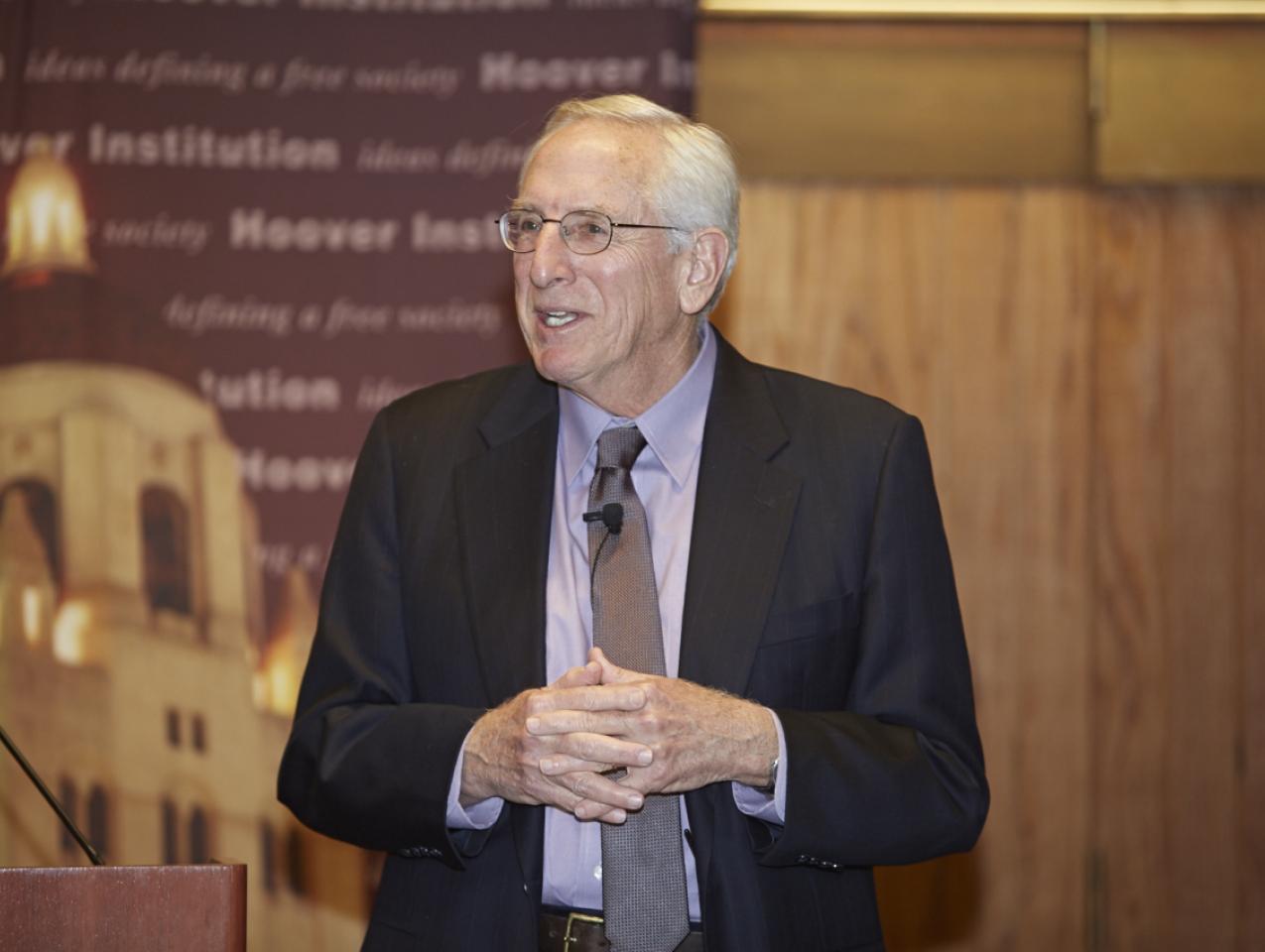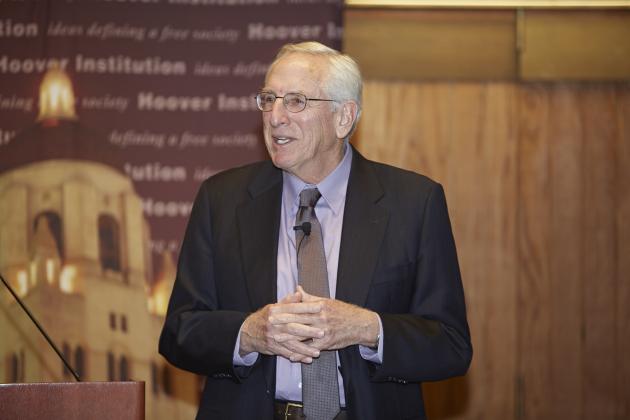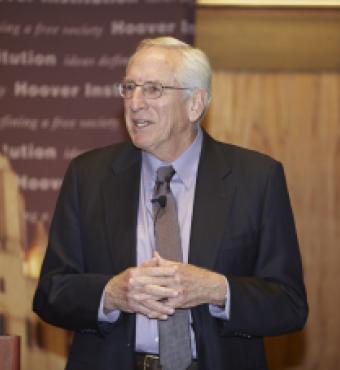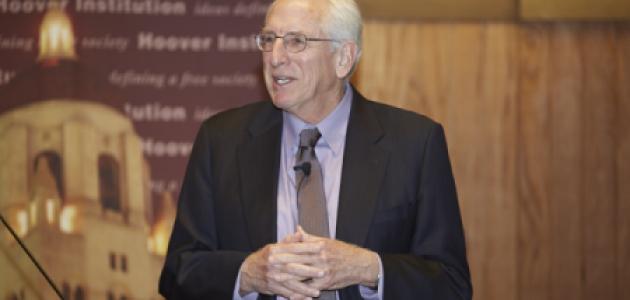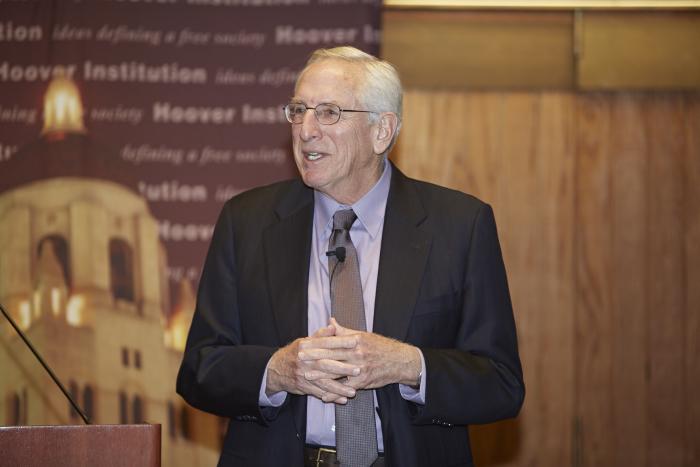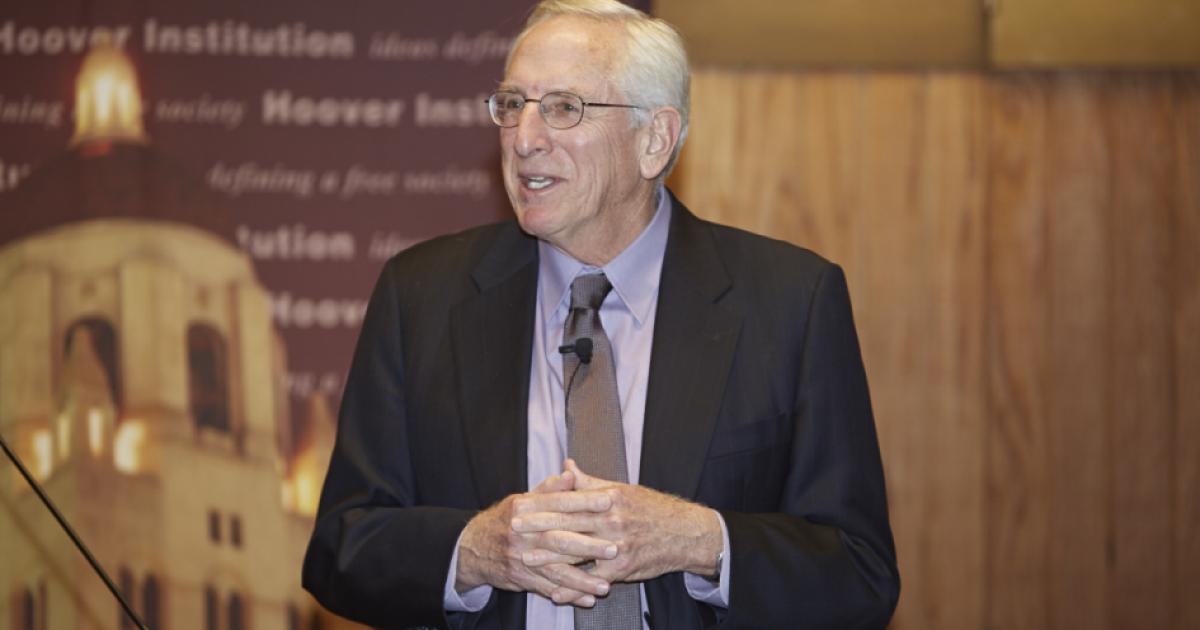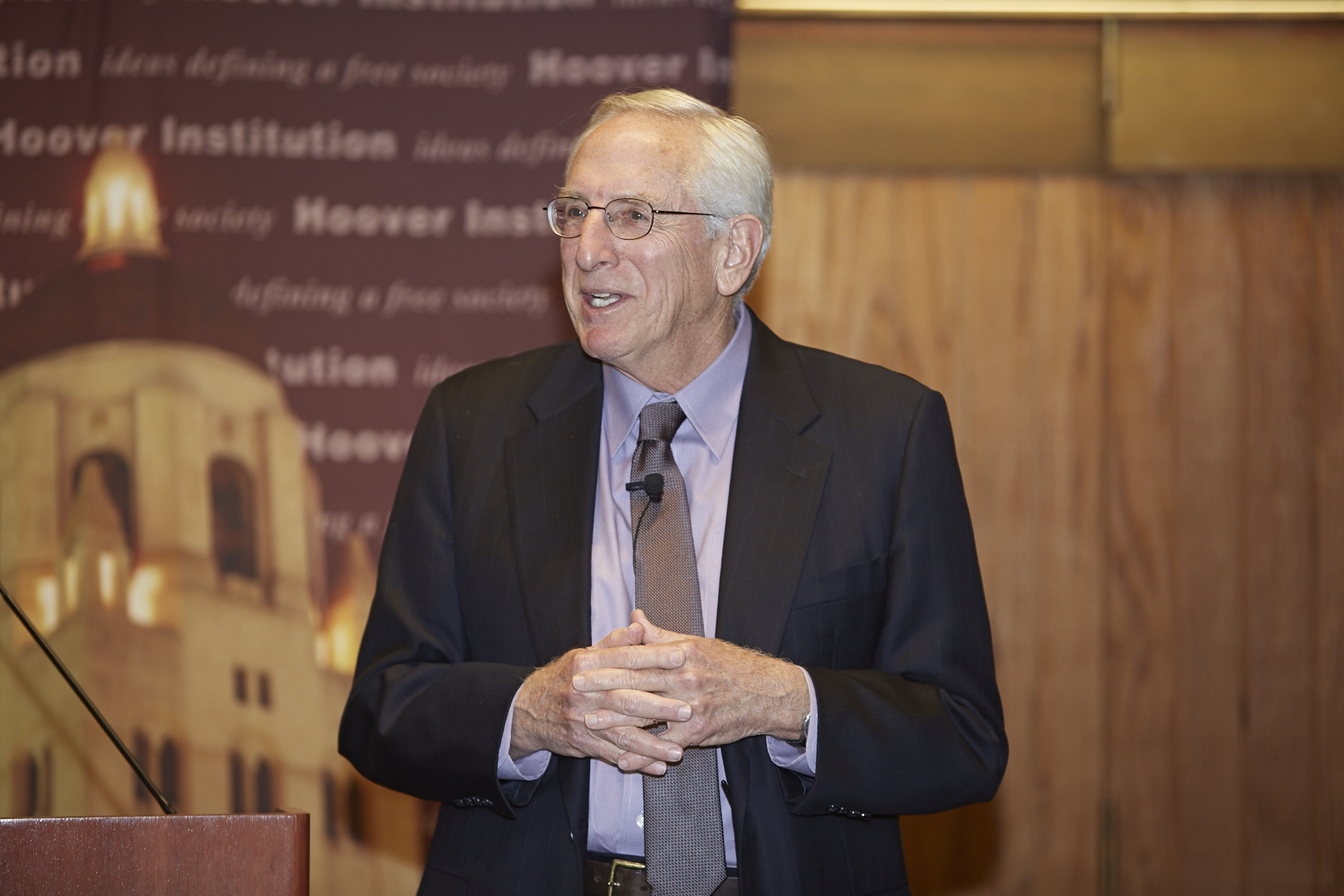
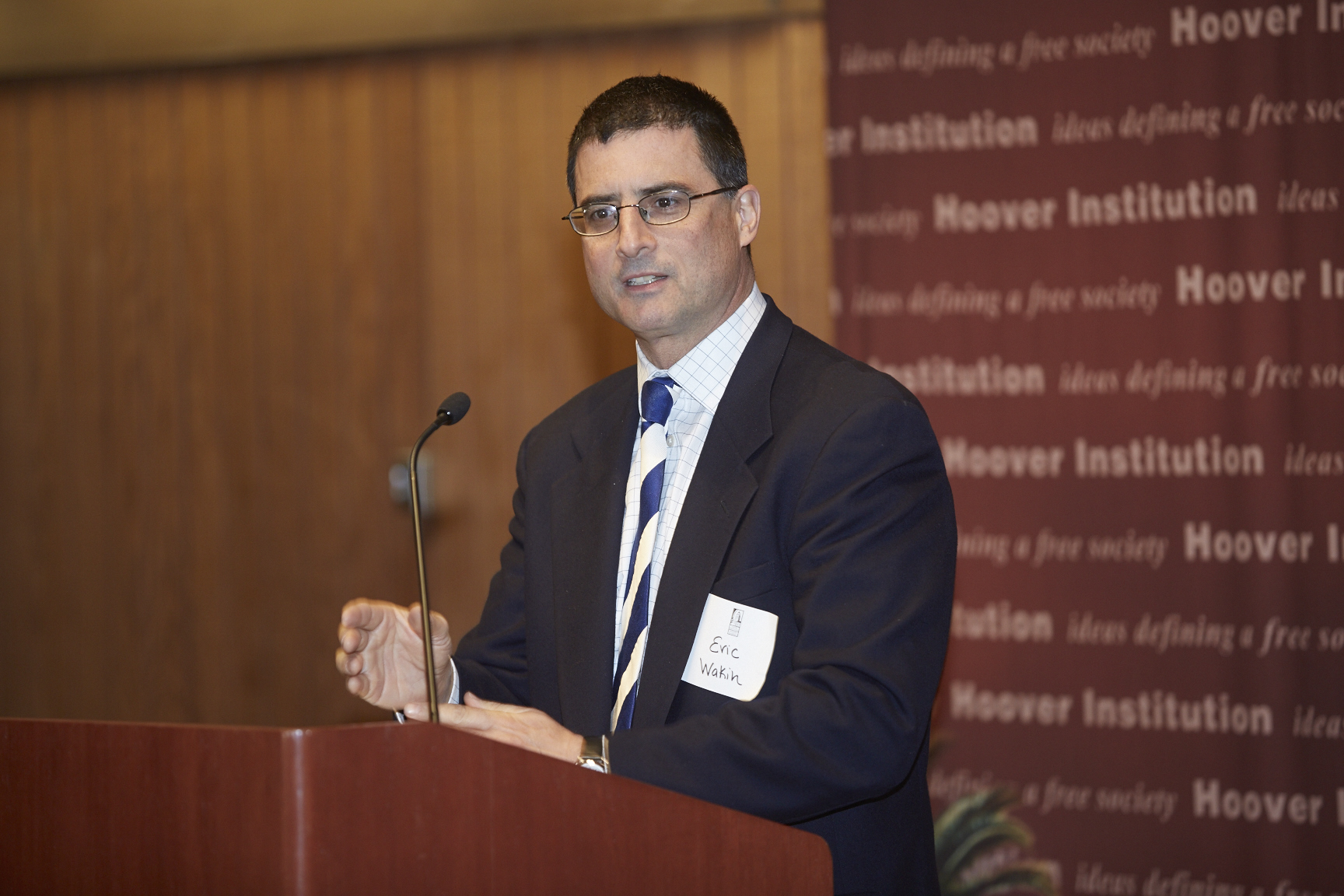
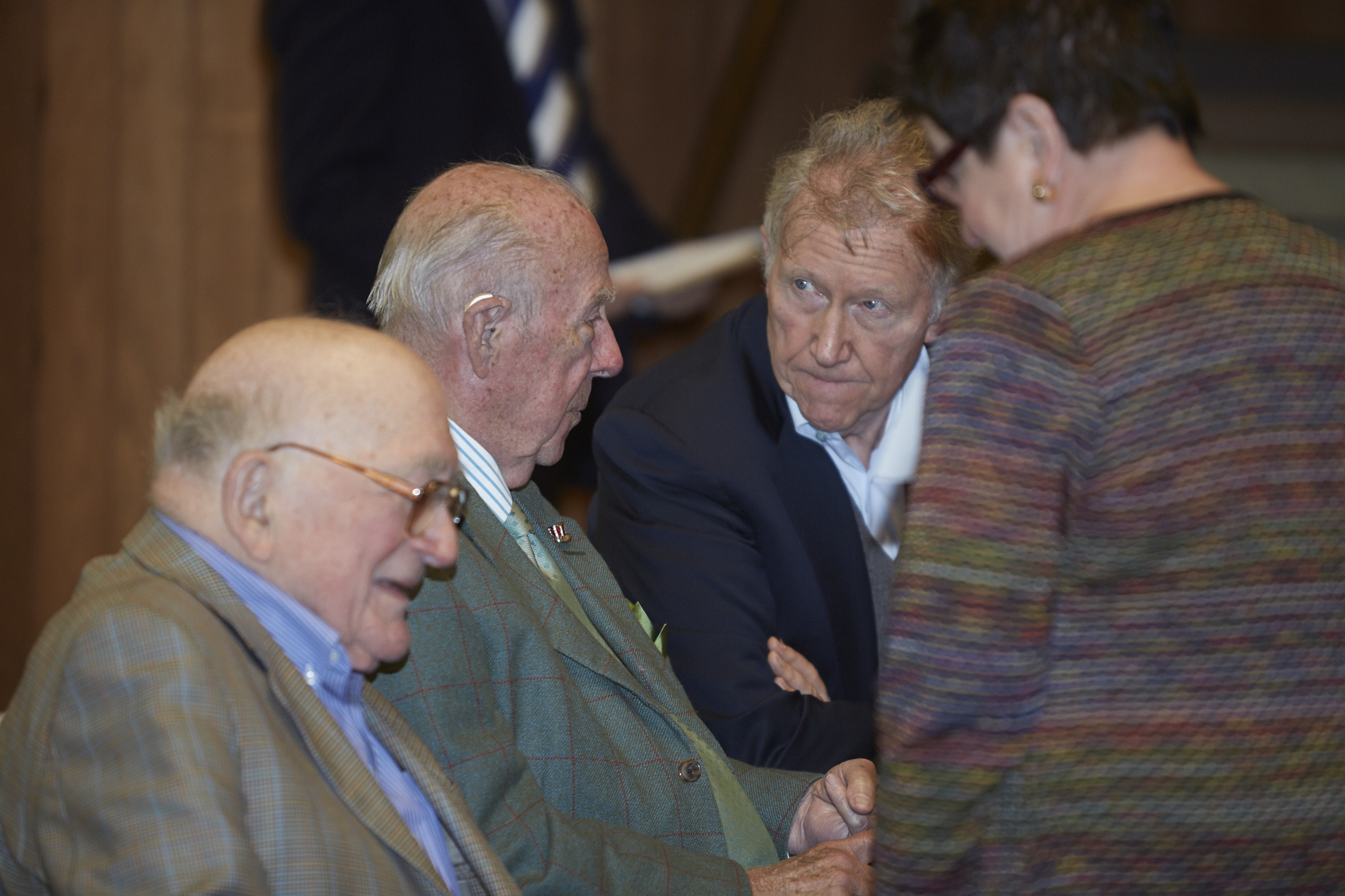
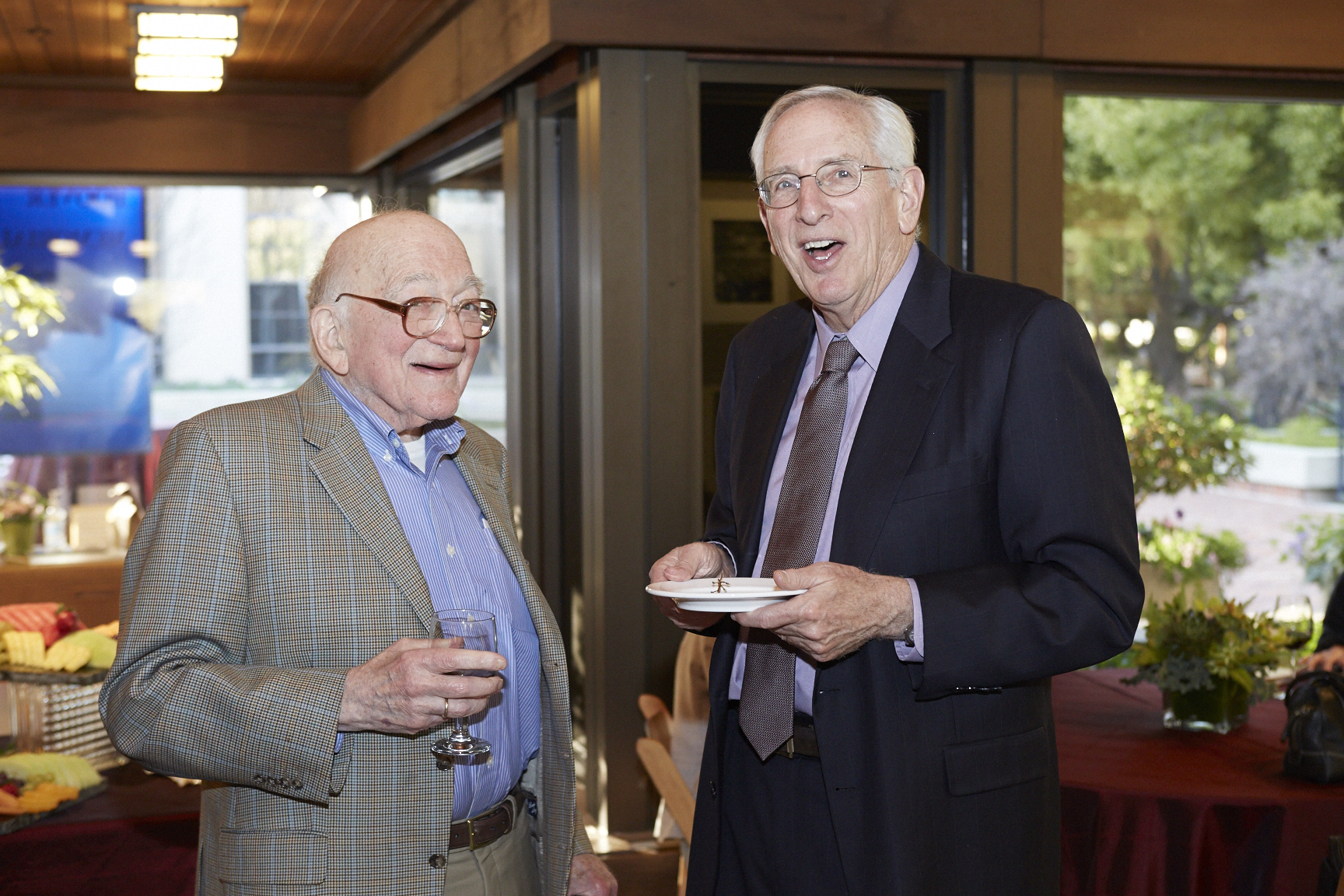
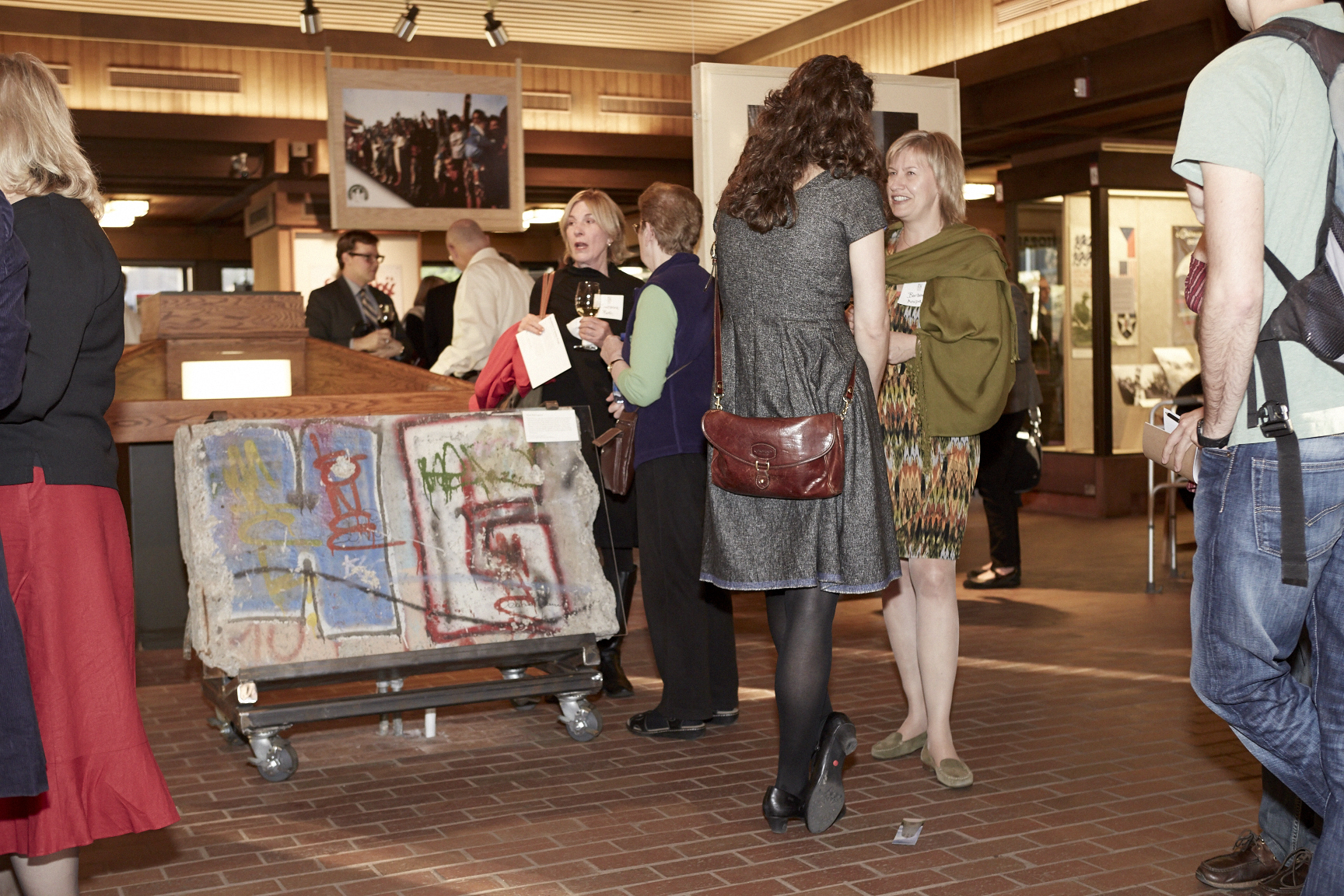

Hoover Senior Fellow Norman Naimark, holder of the Robert and Florence McDonnell Chair in East European History at Stanford and director of the Stanford Global Studies Division, addressed a packed Stauffer auditorium on Tuesday. His talk, “And the Walls Came Tumbling Down: 1989 and the Rebirth of Eastern European Democracy,” was in conjunction with the opening of Hoover’s latest exhibit commemorating the twenty-fifth anniversary of the 1989 revolutions in Eastern Europe.
Introduced by Eric Wakin, director of the Hoover Library and Archives, Professor Naimark, an expert on Eastern Europe, Russia, and Germany, praised Hoover’s “amazing collections, an endless joy to historians of the twentieth century and an incredible resource. People come here from all over the world, and any historian of 1989 would have a field day in the archives for years and years.” After stressing the enormous historical importance of that year (particularly November 9, when the Berlin Wall came down), marking both the end of communism as a bankrupt political system and the end of the Cold War, Naimark highlighted key events and leaders in Poland, Hungary, East Germany, Czechoslovakia, and Romania (the only country in which violence occurred). “When it became clear that Gorbachev would not intervene militarily, the whole house came tumbling down.” During the question-and-answer period, Naimark commented on the present crisis in Ukraine, describing the invasion of Crimea as a major challenge to the international system and calling for the international community to take a stand to contain Putin.
A reception following the talk was held in Hoover’s Exhibit Pavilion, where the new exhibit Revolutions in Eastern Europe: The Rise of Democracy, 1989–90, curated by Assistant Archivist Nick Siekierski, opened earlier in the day. Featuring dozens of posters, photographs, underground publications, election material, and memorabilia such as a nine-hundred-pound chunk of the Berlin Wall, the exhibit showcases the type of ephemeral material that the Hoover Library and Archives aim to preserve and make accessible for research.
Much of that material was acquired by Maciej Siekierski, curator of the European collection, when he headed Hoover’s Warsaw Office from 1991 to 1993, overseeing the collecting of literally tons of documentation on the various revolutions in Eastern Europe and the ensuing transitions to democracy.
The exhibit will run until August 16, 2014. It is open to the public, free of charge, from Tuesday to Saturday, 11 a.m. to 4 p.m.






